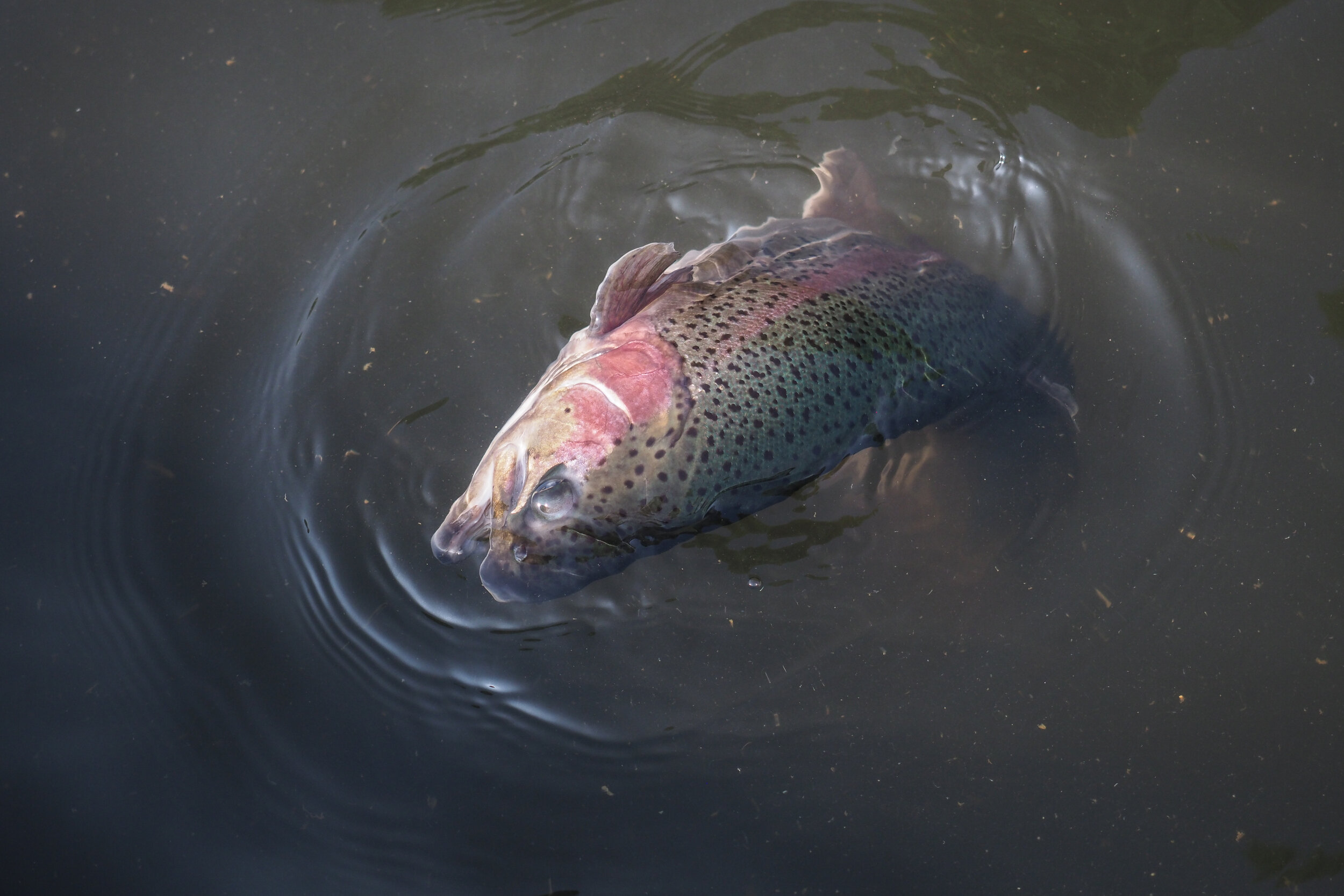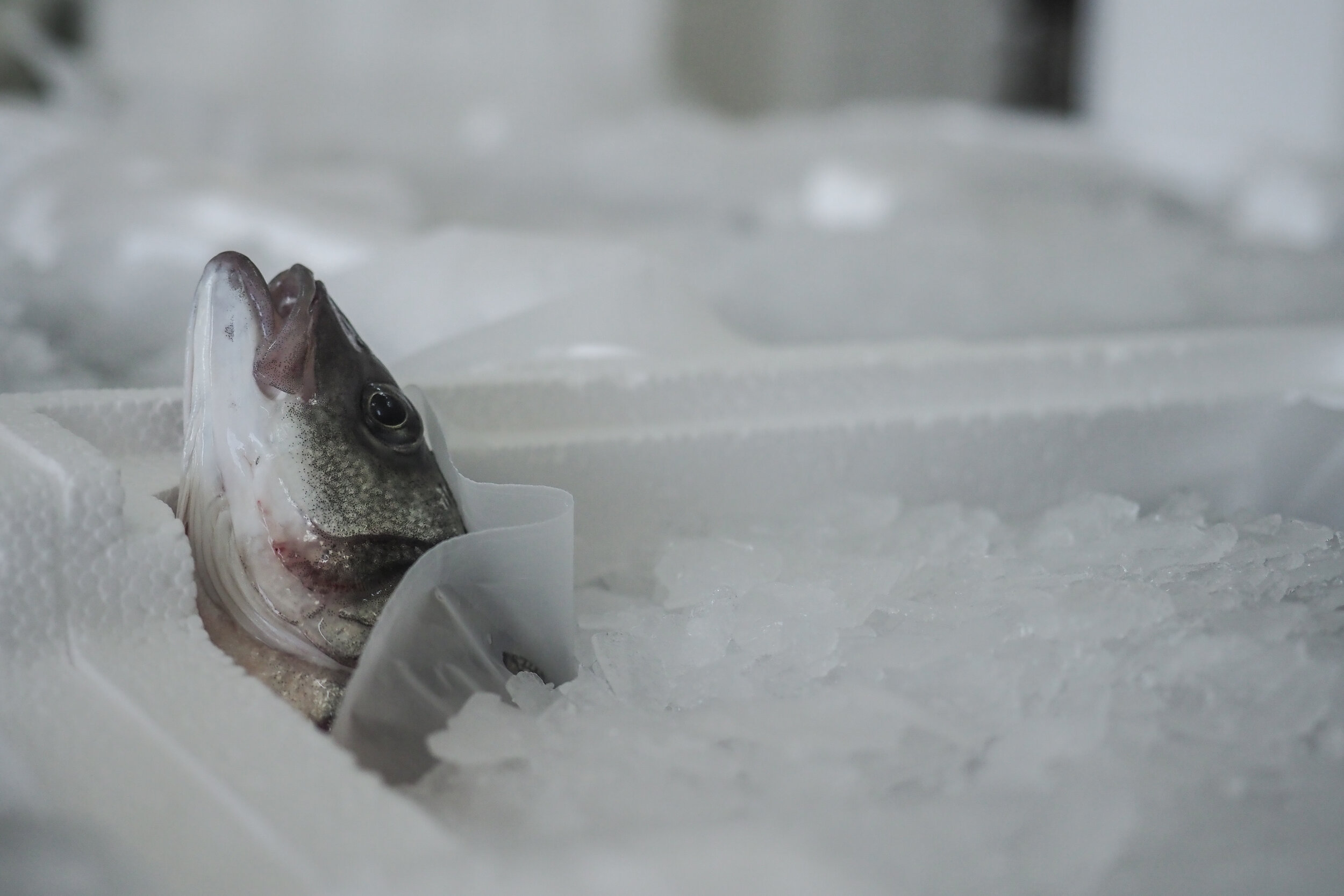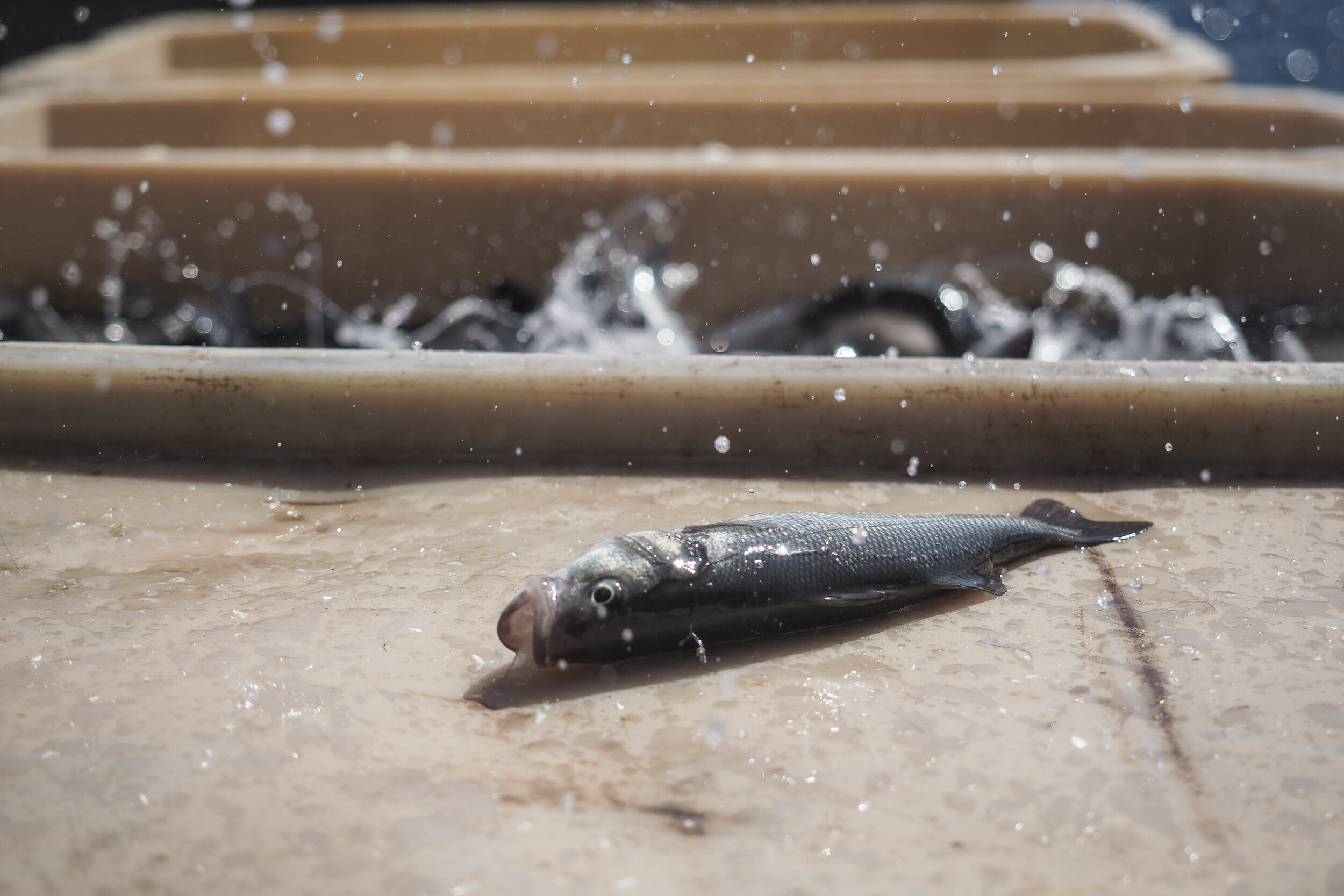Compassion in World Farming: why we should keep fish off our plates!
I was aware of Compassion in World Farming already but I became keen on sharing their message after being one of the panel members interviewed on a podcast hosted by Things Unseen. Dr. Krzysztof Wojtas from CiWF was one of the panel members. Listening to him and finding out more about CiWF’s discoveries was fascinating. Thus I worked with CiWF to create this bespoke interview-style article, so you can find out more about them and why they think fish should be kept off our plates.
What is Compassion in World Farming’s aim?
Compassion in World Farming was founded in 1967 by a British dairy farmer who was concerned by the growing disconnect between agriculture and the well-being of animals and the environment. We are now a global NGO with the mission to end the biggest cause of animal cruelty on the planet – factory farming. While our founder, Peter Roberts, started working on the welfare of dairy cows and egg-laying hens, he soon broadened his welfare work to meat chickens and pigs.
Is Compassion in World Farming pro-vegan?
There is no doubt about it, the best diet is one with more plants. From the perspective of human health, environmental sustainability and, of course, animal welfare, everyone should be eating less meat, fish, dairy and eggs. And when they do eat animal products, consumers should eat ‘better’ – higher welfare products.
Many people have reduced their intake of meat and have started to limit their intake to poultry and fish. Is this beneficial for the planet and if not, why not?
A study into seven UK-based animal product reduction and vegan campaigns found that fish was often the last animal product participants cut down on[i]. The study also found that many people even increased the amount of fish in their diets – as a replacement for other types of meat products. This effect was particularly evident in people most motivated by health or the environment. In fact, by supporting the fishing industry, people are unknowingly contributing to the destruction of the environment.
The global industrial fishing industry operates with huge vessels taking vast numbers of fish from our oceans. Some of these super trawlers pull nets that are big enough to hold 13 jumbo jets! Pulled along the seabed, they are hugely destructive and indiscriminate in design. This means that not only are oceans being stripped of the fish intended for capture, but they are also losing devastating numbers of other marine life such as dolphins, whales and turtles.
In the wild, fish numbers are catastrophically plummeting due to over-fishing. An estimated 93% of fish “stocks” are either overfished or fished to the limits of what is biologically sustainable. Aquaculture has been touted as the ‘blue revolution’ needed to feed the world and respond to a growing population. But just like modern industrialised farming of animals on land, fish farming is unsustainable and devastating for fish welfare. Most of the fish popular with consumers are in fact carnivorous species, such as salmon, sea bass and trout. This means that, in the wild, they hunt other fish. These farmed animals are given feed that is made of wild-caught fish. Around half of all wild-caught fish are used to make fish feed, with up to 350 wild-caught fish to raise a single farmed salmon, so fish farming dramatically increases the pressure on wild stocks. Since these wild-caught fish suffer an excruciating death, the welfare cost of the farmed fish feed is massive – in addition to the catastrophic impact on the environment.
For those who are embracing being pescatarian, does it go far enough? If not, what are the shortcomings?
Given the incredible pressure that our oceans are under, we should all be eating less fish. Currently, it is virtually impossible to find higher welfare fish – current labelling and certification schemes are inadequate. If buying wild-caught fish, although they lived relatively higher welfare lives, we should be aware that these fish undergo excruciating deaths when pulled from their ocean homes. Finding higher welfare farmed fish is equally difficult. Unfortunately, inhumane slaughter and welfare issues such as very high stocking densities remain common across the aquaculture industry.
We encourage everyone to engage with the brands and retailers they shop with and ask about their position on fish welfare – and to continue to take action for fish through Compassion’s campaign to Rethink Fish.
Globally, an estimated 1-3 trillion fish are farmed and caught from the wild each year. However, fish welfare has been given much less attention and research focus than other commonly farmed land animals such as cows, chickens and pigs., Although current EU legislation for farm animals is far from sufficient, fish are specifically excluded from the majority of the regulations. In 2018, Compassion sent undercover investigators to fish farms across Europe where we uncovered a horrific reality. Fish like sea bass, sea bream and trout were kept in appalling conditions – confined to concrete tanks on land or in floating ocean cages by the thousands, these fish spend their short, miserable lives swimming in cramped waters where disease and parasites can thrive. Dead fish were found floating in tanks as live ones swam around them. Equally shocking is the cruel way fish are killed. Sea bass and sea bream are often left to suffocate in large buckets of ice slurry, where they struggle for up to an hour, fighting for their lives, as ice gets lodged in their gills. They can remain conscious throughout this ordeal, and many are still alive when they are packaged for sale. Our team also witnessed trout flailing about in pools of bloody water after having their throats cut, a clear sign that the stunning system was ineffective. This kind of suffering is illegal according to European law, which mandates animals should not suffer unnecessarily while being killed. Not all European countries farm sea bass, sea bream and trout, but these fish are found on supermarket shelves across the continent. Wild fish often suffer for even longer periods. Industrial fishing vessels can take hours to capture fish – they may be caught and stuck in gill nets or on long lines, or they may be chased to exhaustion by trawling nets and crushed during landing on the boat. Those that survive the process will be left to suffocate on deck or may even be gutted alive. The fishing industry falls short in terms of animal welfare and environmental impact, and consumers need to be aware of these issues.



Can you describe what fish can do and explain how intelligent they are?
Fish are intelligent, sensitive, sentient animals capable of suffering and feeling pain. Science is increasingly showing that fish are capable of impressive, sophisticated behaviours. Fish are able to integrate information and have good long-term memories that allow them to learn tasks, problem-solve, use tools, navigate long distances and learn through watching others. They can have social relationships, look after their young, and cooperate with each other. Most importantly, they have emotional lives and are capable of suffering. Unfortunately, fish are not commonly treated as sentient beings. Billions are reared in underwater factory farms each year, and, just like on land, these farms are crowded, grim places where the animals suffer immensely. And, surprisingly, many self-described vegetarians consumed fish, calling into question whether some people consider fish to be animals at all.
[i] https://forusallsite.wordpress.com/2019/03/22/fish-is-not-a-vegetarian-food/
Now that you know the above about fish. Will you Rethink Fish?
Related content
Why vegans don’t eat eggs
Why don't vegans eat honey?
How I define a plant-based diet
What about eating the eggs of hens that I look after in my home?
Respect for Fish Day
“Chicken faeces is one of the main ingredients in farm fish feed.”

